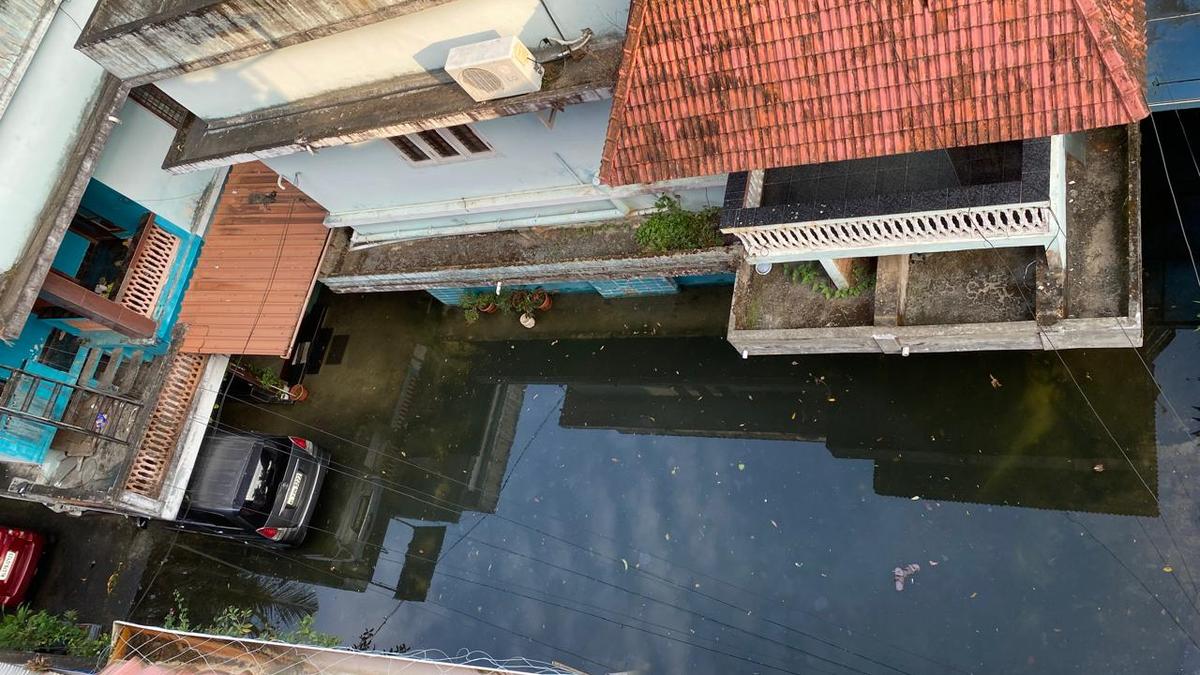Kochi Corporation’s proposed septage treatment plant (STP) in West Kochi is grappling with significant delays due to frequent and prolonged tidal flooding.
This unforeseen challenge is not only hampering the project’s progress but is also likely to lead to cost escalation, raising concerns over budget overruns and project completion timelines. The STP, designed to treat 11 lakh litres of septage daily, aims to serve around 2,000 households in the Edakochi South division. Initially planned under the Atal Mission for Rejuvenation and Urban Transformation (AMRUT) Scheme-I with an estimated budget of ₹18.60 crore, the project’s funding continues under the same scheme even after its conclusion. Any additional costs arising from the delays will need to be addressed through AMRUT II, the State Government, or the Corporation’s resources. According to official sources within the Corporation, approximately 50% of the physical work has been completed. This includes the laying of a 7 km pipeline out of the planned 20 km network. However, the process has faced repeated setbacks due to the adverse effects of tidal flooding, which complicates the already challenging task of laying pipelines for septage treatment. Unlike water supply pipelines, these require meticulous planning to ensure gravitational flow, adding to the technical complexities.
The situation is further aggravated by the narrow roads in the region, which makes excavation difficult. The digging has caused the collapse of compound walls and even parts of houses, leading to public discontent and protests. These disruptions not only slow down construction but also create additional logistical and safety concerns for the workers involved. Experts in urban infrastructure suggest that such projects, especially in coastal areas, demand robust flood mitigation strategies and advanced engineering solutions. The current situation underscores the need for comprehensive risk assessments and adaptive project management frameworks to address environmental challenges effectively. Despite these hurdles, the Kochi Corporation remains optimistic about completing the STP by June, with trial operations scheduled to commence shortly thereafter. Orders for the necessary equipment have already been placed, signalling a commitment to overcoming the current setbacks.
The project was initially awarded after multiple tendering rounds due to the bids exceeding the pre-pandemic estimated cost. Construction finally began in November-December 2023, following extensive public protests. The delay in starting the project has compounded the financial strain, with additional costs now anticipated due to the tidal flooding and related infrastructural damage. While the STP is critical for improving waste management and environmental health in West Kochi, the ongoing challenges highlight the broader issues faced by urban infrastructure projects in flood-prone coastal regions. The need for sustainable, resilient designs that can withstand such environmental impacts is more pressing than ever, especially as cities grapple with the escalating effects of climate change.
The Kochi Corporation’s officials have assured that all necessary measures are being taken to mitigate the impact of the tidal flooding. However, the final cost implications and the project’s timeline remain uncertain until the situation stabilises.


